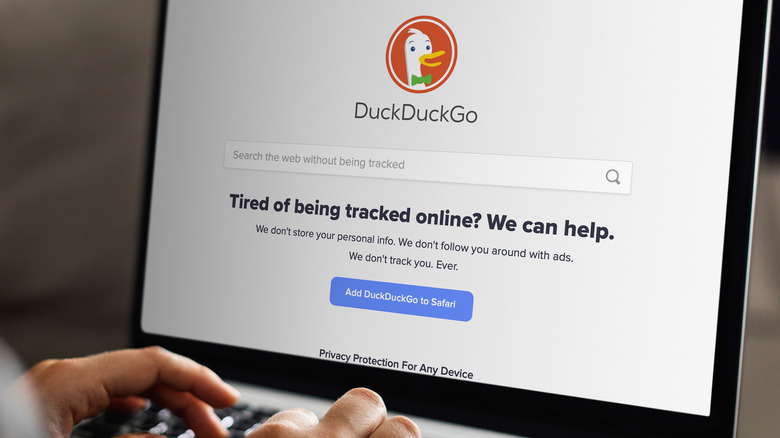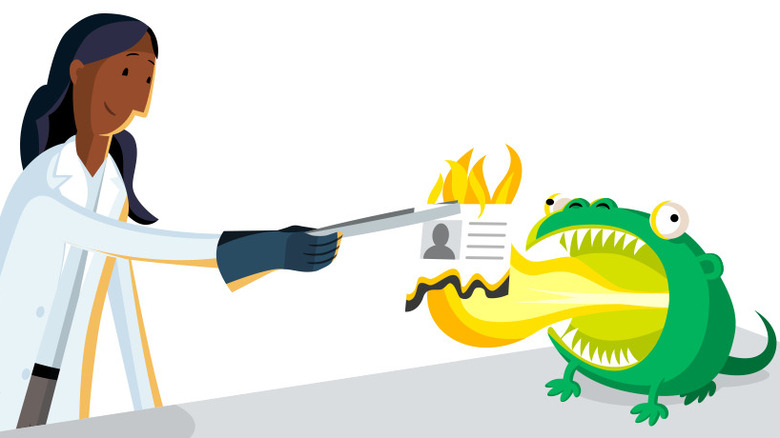DuckDuckGo Browser Isn't As Private As You Thought
Despite being known for its privacy features that include preventing trackers and protecting personal information, DuckDuckGo's web browser does appear to allow for exceptions — whether you want them or not. The Chrome, Safari, and Edge alternative has built a reputation around more comprehensive safeguarding of its users, a high-profile topic at a time when individual privacy online seems in many cases to be up for sale to the highest bidder. All the same, going by the small print, DuckDuckGo isn't quite as divorced from data brokers as you might assume.
According to a help page on DuckDuckGo's website, Microsoft has partnered with the private browser company to provide ad management. The caveat of this partnership is that, when you click on an ad provided by Microsoft, the Microsoft Advertising platform will redirect you to the appropriate website. That in itself may not sound like a big deal, but by DuckDuckGo's own admission: "Microsoft Advertising will use your full IP address and user-agent string so that it can properly process the ad click and charge the advertiser."
The page goes on to explain that the information and click-through data isn't being tied to a user profile, in contrast to many other web browsers. However, some users are understandably concerned not only about their IP addresses being tracked, but particularly the fact that it's happening in a web browser that purports to prevent third-party tracking.
So what's going on?
News of the browser's inability — or refusal — to block Microsoft data tracking was first broken by privacy and data researcher Zach Edwards on Twitter. In his thread, Edwards goes into detail about how the web browser doesn't block Microsoft data flows on iOS or Android for sites and services like Bing, Facebook Workplace, or Linkedin.
DuckDuckGo CEO and founder Gabriel Weinberg has since responded to Edwards' Twitter thread, explaining the myriad privacy features the browser offers and providing some additional details. Weinberg explained that, while the browser does block most third-party trackers, the company's partnership prevents it from doing the same to properties that are owned by Microsoft.
Weinberg went on to state that he can't provide details due to a confidentiality agreement, but insists that DuckDuckGo has been trying to push back on these requirements. The browser company CEO ended his response with an assurance that "we expect to have an update soon that will include more third-party Microsoft protection," though there's no telling quite how long it might take for that to arrive — or whether it can restore damaged trust from DuckDuckGo users who now feel they were misled.

